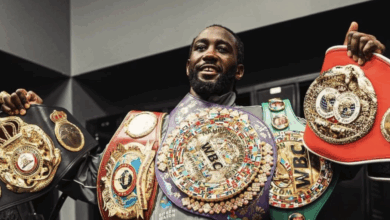AIBA Talks “Questionable” Scoring In Olympic Boxing

While the Olympics have had it’s fair share of great moments in the sport of boxing, it hasn’t came without controversy as well. Even in the amateur level, there’s talk of bad officiating after many fans and Olympic boxers have cried foul over the way judges have scored fights.
The scoring of Olympic contests is under scrutiny at the Rio 2016 games. Decisions that saw Evgeny Tishchenko win the heavyweight (91kg) gold medal on August 15 and Irish bantamweight Michael Conlan lose on August 16 to Russia’s Vladimir Nikitin have been called controversial.
Thomas Virgets, a member of the International Boxing Association (AIBA) executive committee, told Boxing News that there is a process in selecting the judges for these Olympics.
“First the officials that got here got here because they were evaluated over a period of two years and these were the ones who scored the highest, but relative to the continents because we also have to ensure neutrality among the officials,” Virgets said. “Once they were chosen they went to a number of clinics and were trained even more, participated in a lot of training. Once they got here what happens is in the field of play, in every bout we have two people called referee and judges evaluators. They are evaluating every bout that goes on and every day they are addressing those bouts with these individuals. If we have a particular bout that the referee and judges evaluators say, ‘We really need to take a look at that bout,’ then there’s a small committee that’s put together here by AIBA, I’m one of those individuals. We review the films and take a look at it relative to what happened.”
This is the first Olympics in which the scoring system mirrors that of professional-level boxing with the fighters also no longer wearing head gear. The changes were implemented in 2013. Virgets also credits the parity in the sport as a factor for some of the scoring.
“The other thing that you’ve got to look at is the parity,” Virgets said. “Every bout is highly competitive and the margin of difference between these boxers is quite often very, very slim. But still this is an Olympics. We want to get it, not 98% of the time right, we want to get it 100% of the time right. So we’re constantly evaluating ourselves relative to what’s going on. There’s continuous feedback throughout the tournament. As soon as this is over we will review every single bout and we will start taking a look at how do we improve ourselves. We’re in a transition right now, we went from the 2012 points system [computer scoring] to where we are now.”
It is unlikely that any major changes will occur in what is left of these Olympics, but Virgets said that the AIBA always look to improve the officiating in fights.



